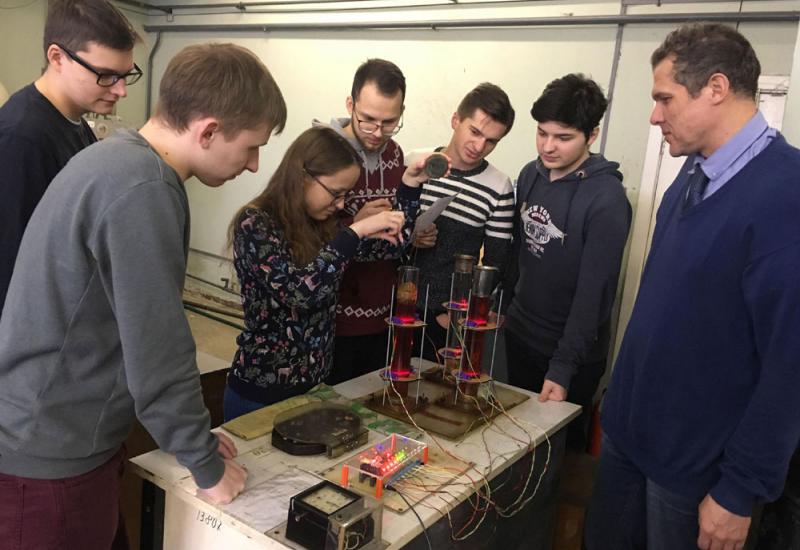It is known that the experiment is the most important method of research in the natural and technical sciences, and measurement is one of the most important components of the experiment. Without proper measurement method and reliable measuring instruments, it is impossible to obtain reliable information about the object of research. The case is complicated when it is necessary to observe systems that are characterized by many parameters, when processes have a small duration and a large swirling, or, conversely, proceed very slowly and for a long time. To overcome such constraints there are modern information technologies, which eventually become more and more affordable.
At the Department of Machines and Apparatuses of Chemical and Refining Industries (MACRI) a group of enthusiasts headed by a senior lecturer, Ph.D. Y.G. Dvinos and the laboratory manager O.V. Martinyuk, has developed effective measuring systems based on the open platform Arduino. Their initiative was supported by the students of the group LN-51 P. Yevzyutin, O. Italiantsev, V. Gavrilenko. The result of the work was the modernization of two laboratory facilities, intended to study the kinetics of the precipitation process and the process of drying with the recirculation of part of the produced air.
A complex kinetic, which is also significantly different for different materials, characterizes the drying process. In addition, the process endures rather slowly. Therefore, the study of the kinetics of this process requires multiple fixation of a number of parameters at certain intervals of time. Device take-off displays - work is exhausting and quite boring, which can lead to errors. Thanks to the modernization of the plant, the laboratory work on studying the drying process has become not only more accurate, but also spectacular and interesting.
Many students of our university, in the course of general physics, performed laboratory work on the study of Stokes’ processes during the deposition of crusher in a long tube filled with glycerol. Thus, it is possible to investigate the laminar regime of deposition, but for future engineers-mechanics of chemical vineyards, this is not enough. Deposition can also take place under transition or turbulent conditions. For research of these phenomena at the department of MACRI there is a long-standing experimental installation, but with the study of the process in turbulent mode there was a very serious problem - the experimental samples settled in liquid linings quickly, which was not possible to obtain the exact value of the time of deposition. The solution to the problem was the use of laser sensors.
The prototype of the device for measuring and analyzing the rheological characteristics of fuel and lubricants has been developed. The device is a measuring glass cylinder and an electronic unit based on Arduino processor and sensors. The lasers have a spherical beam, which is fixed from the opposite side of the cylinder by a line of photoconductors connected to the controller through the comparators. The created prototype of the device measures the time for which the sphere, moving under the action of gravity, passes from one laser beam to another in an environment whose viscosity is measured. The accuracy of the time measurement is 0.001 seconds. The error in repeating experiments is less than 1%. To process the results, a mathematical model and a calculation program is created in the MathCad environment.
Subsequently, the project authors plan to refine the device and software and certify it in Ukraine for use in order to control the quality of lubricants.

